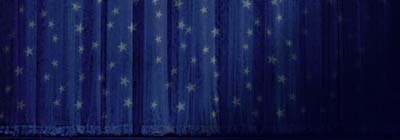
JERRY HENDRICKS
 |
Top Ten Books |
1. |
Trinity - Leon Uris |
 |
An historical novel portraying Ireland from the potato famine of the 1840's to the Easter Rising of 1916. As one with Irish Protestant roots, I should have related to the Macleods, but the Catholic Conor Larkin was the classic hero. To this day, I can't understand how this was never made into a movie. Since the "troubles" were still brewing at the time, it may not have been politically feasible, but the heroic struggle is perfect for Hollywood. |
2. |
One Flew Over The Cuckoo's Nest 1962 - Viking Press |
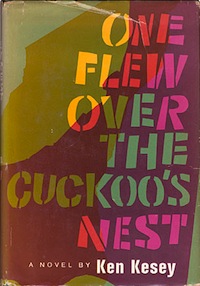 |
The only book I've ever read twice, once before the movie version, once after. As is usually the case, one imagines a character much differently than does Hollywood, and I dreaded seeing Jack Nicholson playing the part of a stocky red-headed Irishman, but of course, he made the role into his own. I saw an off Broadway production in 1971 with William Devane as McMurphy, who better fit the description. The movie left out some of the humor, most notably my favorite chapter about the Monopoly game |
3. |
Ragtime - E. L. Doctorow 1975 - Random House |
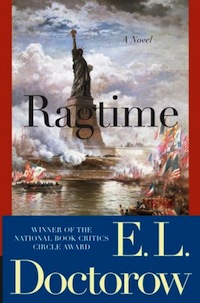 |
Another historical novel, this time about early 20th Century America, interweaving stories of fictional and historical figures. As with Trinity, I looked forward to a movie version, but when one was released to poor reviews, I never bothered to see it. Nor did I see the Broadway musical. I may see both someday, but for now I'll just keep my own memories intact. I remember getting so wrapped up in the story while reading this sitting outside one spring day, that I suffered a bad sunburn without realizing it was happening. |
4. |
A Hitchhiker's Guide To The Galaxy - Douglas Adams 1979 - Pan Books |
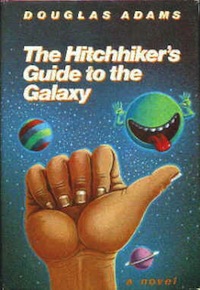 |
Possibly the funniest book I've read (sorry Dave Barry), and wittiest (sorry Oscar Wilde) yet another example of the difficulty in translating to the screen, big or little, though the radio version was somewhat successful. The BBC TV series was OK, but seemed to lose some of the wit and wordplay, and cheesy production values didn't help. It also became a multimedia phenomenon being adapted into video games, a stage version and comic books, but I am unfamiliar with any of those. |
5. |
Slaughter-House Five - Kurt Vonnegut, Jr. 1969 - Dell |
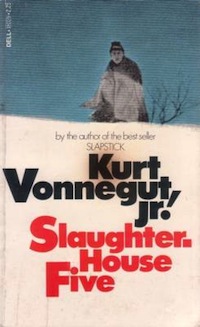 |
In the early 70's I discovered, and got hooked on, Kurt Vonnegut, and proceeded to read every book he had published to date. My memory of them tend to run together, but Slaughter-House Five stands out, perhaps because there was a movie version, but also for it's timeless anti-war theme. The movie was acceptable, but difficult with the many time shifts. |
6. |
Dave Barry Turns 50 - Dave Barry 1998 - Crown |
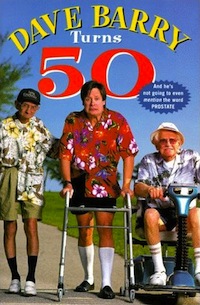 |
Could have picked almost any Dave Barry book, every one is laugh out loud funny. My family seems to get a kick out of seeing me laughing myself silly on Christmas morning curled up with this latest. |
7. |
Catch-22 - Joseph Heller 1961 - Simon & Schuster |
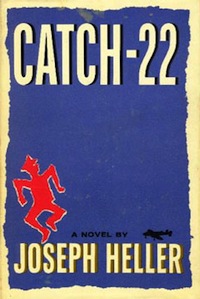 |
Although written about World War II, and before a major presence in Vietnam, it perfectly reflected the 60's anti-war, anti-hero and anti-authoritarian themes. A combination of Marx Brothers twisted logic and Roshomon style disparate viewpoints. The secular sentiments were toned down for the movie, but still very well done. A stage play and TV show were less successful, but I should check out the sequel "Closing Time" some time. |
8. |
A Short History of Nearly Everything - Bill Bryson 2003 - Broadway Books |
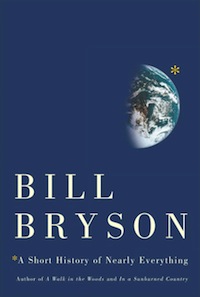 |
Must read this one again someday. Choke full of fascinating tidbits, but too overwhelming to digest them all. Should probably be read very slowly over a long period of time, but he's such a great writer, it's hard to put down. |
9. |
Guns, Germs and Steel - Jared Diamond 1997 - W.W. Norton and Company |
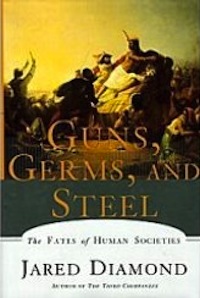 |
No choice but to read this one slowly. Can be quite dense, but remarkable ideas and well worth the effort. This is the rare example of making a TV show out of a scholarly work seem like a good idea. It was naturally much lighter in tone, but the basic message still came across. Had the privilege to see him speak at a professional meeting in 2010. |
10. |
Goldfinger - Ian Fleming 1959 - Jonathan Cape |
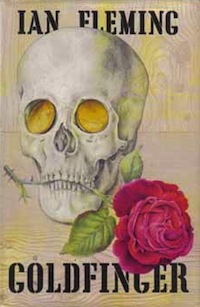 |
I credit my mom for sparking an interest in reading for pleasure. I think the first book read for pleasure was a biography of Hoyt Wilhelm, my favorite baseball player at the time, but mom gave me a James Bond book and I proceeded to read most of them while in high school. I don't really remember which one I liked best, but Goldfinger was the best movie, so I'll choose it. |
